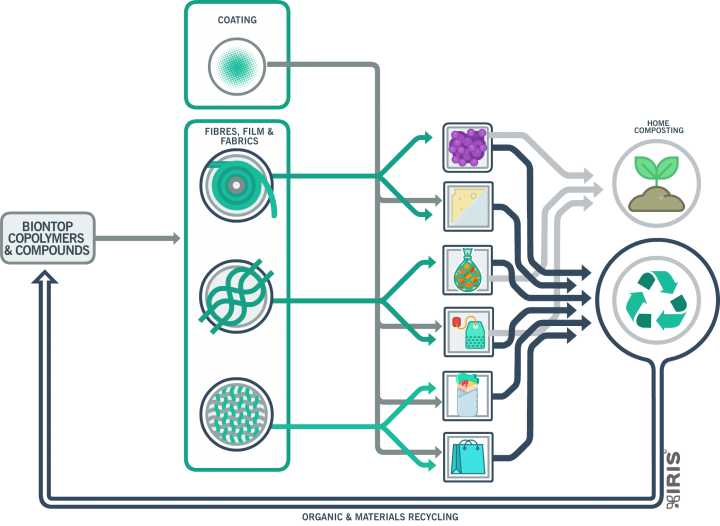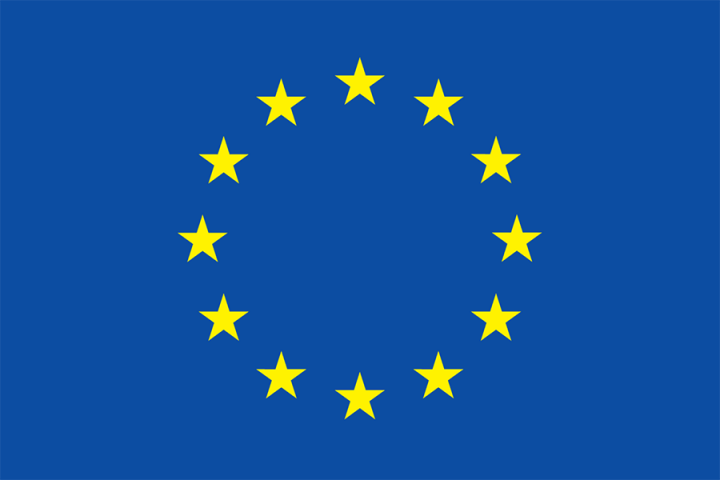Feuils et textiles d’emballage innovants à base de co-polymères et d’enductions biosourcés et dotés d’une “fin de durée de vie” sur mesure
Actuellement, seuls 31% de toutes les matières plastiques sont recyclées. Surtout la “Fin de Vie” des emballages plastiques présente encore de sérieuses défaillances. C’est pourquoi, il est nécessaire de trouver des solutions présentant un bon rapport coût/efficacité pour produire des matières plastiques caractérisées par un contenu biosourcé élevé dédiées à des applications en matière d’emballage aux exigences sévères, tout en maintenant un caractère compostable dans des conditions clémentes.
Sur base de co-monomères, d’additifs et de charges d’origine durable, ce projet vise à formuler de nouveaux co-polymères et compounds à base de PLA dédiés à la production d’emballages conçus en vue d’un recyclage mécanique, qui conviennent au compostage dans des conditions industrielles/domestiques et même à la digestion anaérobie. En outre, les propriétés barrière des barquettes, films et produits d’emballage dérivés biosourcés seront renforcées par l’application d’enductions rétractables à base de protéines et d’une technologie innovante de greffage d’acides gras, qui devra permettre de réduire la perméabilité. Dès lors, ces nouveaux produits d’emballage pourront faire concurrence aux emballages à base de matières premières fossiles.
Dans le domaine des emballages textiles, les enductions utilisées couramment ne sont pas biosourcées et d’origine différente de celle des fibres enduites, ce qui rend le recyclage du matériau ou le recyclage organique extrêmement complexe. Le développement des nouvelles enductions à base de PLA ou du greffage d’acides gras, permettra de procéder à la remise en œuvre de ces matériaux sans perte significative des propriétés.
Les emballages mis au point à base de >85% de matières premières renouvelables répondront à un vaste éventail d’exigences imposées aux emballages et présenteront en outre plusieurs options en fin de vie, notamment un caractère biodégradable dans des conditions de compostage domestiques et une aptitude au recyclage en vue d’une transformation en emballages secondaires.
Based on new circular bioeconomy value chains, BIOnTOP will generate growth for EU bioplastics and end users’ industries in the food and personal care sectors with potential in many fields: BIOnTOP production is estimated to reach close to 9.6 Mton per year by 2030, overall leading to €40 M turnover and 170 new jobs. All in all, reducing the environmental footprint of plastics, our new bio-based packaging will have a significant positive social and environmental impact.
Objectives
The main goal of BIOnTOP is to deliver novel bio-based biodegradable packaging based on versatile copolymers and coatings that optimally preserve the packed products but also our resources (packaging based on significantly >85% renewable resources, partly produced from by-product biomass and recyclable). The different conversion processes as well as post-consumers waste sorting and recycling will be upscaled following advanced industry 4.0 approaches. Based on tailored PLA formulations and removable barrier or monomaterial coatings, BIOnTOP packaging will be compatible with a broad range of packaging applications’ requirements but also multiple EoL options (materials & organic recycling, home & industrial composting and biogas production by AD).

The aim is to develop new bio-copolymers, compounds, biocomposites and coating formulations and process them into:
- Recyclable, home-compostable monomaterial trays & films for fruits and vegetables.
- Recyclable, multilayer trays & films for MAP (modified atmosphere packaging) for e.g. dairy and personal care products.
- Home compostable & organically Recyclable nets for F&V.
- Home compostable & organically recyclable coated textiles e.g. woven fabric tea bags.
- Recyclable, reusable coated woven fabrics e.g. food wraps.
- Recyclable, reusable secondary packaging from SRM (secondary raw materials):
- Extruded blown bags.
- Non-woven bags.
Consortium
- Aimplas - Spain (co-ordinator)
- INSTM - Italy
- Centexbel - Belgium
- Albstadt-sigmaringen university - Germany
- European bioplastics - Germany
- Total Corbion pla bv
- PLANET - Italy
- BioMi - Croatia
- EMSUR - Spain
- CMSA - Spain
- SILON - Czech Republic
- Sioen - Belgium
- WEAREBIO - Estonia
- Entrepinares - Spain
- UBESOL - Spain
- OWS - Belgium
- Romei - Italy
- IRIS - Spain
- ARCHA - Italy
- ENCO - Italy
- MC - Italy
Project related Figures
Budget 5,4M € (BBI-JU contribution 4,2M€)
21 partners (4 RTOs, 9 SMEs, 6 Large, 1 pan EU industry association) and 7 BIC members plus Advisory board
8 countries

Horizon 2020
This project has received funding from the European Union’s Horizon 2020 research and innovation programme under grant agreement No 837761
H2020 – BBI JU
The Bio-Based Industries Joint Undertaking (BBI JU) is a €3.7 billion Public-Private Partnership between the EU and the Bio-based Industries Consortium. Operating under Horizon 2020, this EU body is driven by the Vision and Strategic Innovation and Research Agenda (SIRA) developed by the industry.
A strong European bio-based industrial sector will significantly reduce Europe’s dependency on fossil-based products, help the EU meet climate change targets, and lead to greener and more environmentally friendly growth.
The key is to develop new biorefining technologies to sustainably transform renewable natural resources into bio-based products, materials and fuels. This nascent sector is expected to grow rapidly and create new markets and jobs, and is already attracting substantial investments in the US, China and Brazil. The EU has the industrial, research and renewable resources potential. It is now a matter of deploying it in a sustainable manner to compete in the global bioeconomy race.




